Manufacturers have chance to order up ideal employees
In August, Carl Langdon will celebrate 50 years working for the same business. He has a high school diploma, trade education in tool and die work, professional training in engineering design and was largely self-taught in much of the technology at KHS Bartelt USA.
Langdon was hired in 1962 as an electrician, wiring packaging machines for a company that ultimately became KHS Bartelt. Over the decades, he has also worked as draftsman, electrical engineer, design engineer, electrical- engineering manager, control-systems manager and mechanical engineer.
Today, Langdon is lead mechanical engineer and has helped create much of the technological innovation in packaging machinery KHS sells worldwide.
The company designs and builds high-tech packaging machines at its plant on U.S. 301 in Sarasota. Using KHS Bartelt machines, companies package thousands of consumer products, including most of the beef jerky made in the United States. The average pouch-packaging machine KHS Bartelt makes has a $600,000 price tag.
“Carl represents the type of employee that American manufacturing needs to be globally competitive,” said Mary Mercurio, human resources director for KHS USA, which is part of the German-owned, 4,500-employee KHS GmbH. “Carl walked in the door with technical aptitude and some skills, but he was dedicated to learning more, demonstrated initiative and drive, and applied his talents to innovating technology that gives our business a competitive advantage.
“American manufacturing needs all the Carl Langdons we can find. I have to import a lot of the skills we need. The qualified, technically experienced employees we need are difficult to find locally.”
KHS, with 125 employees in Sarasota, is not alone. Manufacturers across the region have said for years that there is a gap between their need for technical workers and the skill sets of local job candidates.
In defense of local training and educational institutions, employers have not always been effective in communicating their needs or in uniting to create a critical mass of demand that allows institutions to invest in curriculum or equipment.
Over the years, the Sarasota Manatee Area Manufacturers Association and Suncoast Workforce — the regional arm of the state’s employment, recruiting and training agency — have worked more closely with economic-development organizations and employers to identify needs and opportunities. Local institutions such as State College of Florida, the University of South Florida Sarasota-Manatee, Sarasota County Technical Institute and Manatee Technical Institute are at the table to help design solutions.
And now, manufacturers have an ideal opportunity to express their specific needs through a survey sponsored by CareerEdge, the regional funders collaborative developing the workforce of the future.
Through survey responses from manufacturers in Sarasota and Manatee counties, CareerEdge will identify whether appropriate training exists and, if not, how training partners can help manufacturers develop the skilled workers they need for their companies to grow. The survey will close out soon, so manufacturers that want to be heard on this vital topic should visit CareerEdgeFunders.org to participate.
Why should the community care? Parents want their children to have local career opportunities that pay well. Positions in manufacturing fit that bill, with the annual wage averaging $43,202, according to government figures. That’s 15 percent higher than the Sarasota County average of $37,562. The year-round payroll of manufacturers provides a substantial boost to the local economy, supporting the local tax base, retailers, the arts, charities and education.
In the Sarasota-Manatee area, packaging-related businesses alone account for hundreds of jobs and millions in annual payroll. KHS Bartelt is credited with giving birth to the region’s packaging industry when it arrived from Illinois in 1977. Since then, the business has spawned new local firms as experienced employees launched their own entrepreneurial ventures.
In addition, manufacturers tend to sell their products outside the local market, bringing new wealth into the community. They make substantial capital investments in equipment and facilities that also contribute to the tax base.
As a region, we should work together to develop more Carl Langdons. It’s good for the economy and our community.

